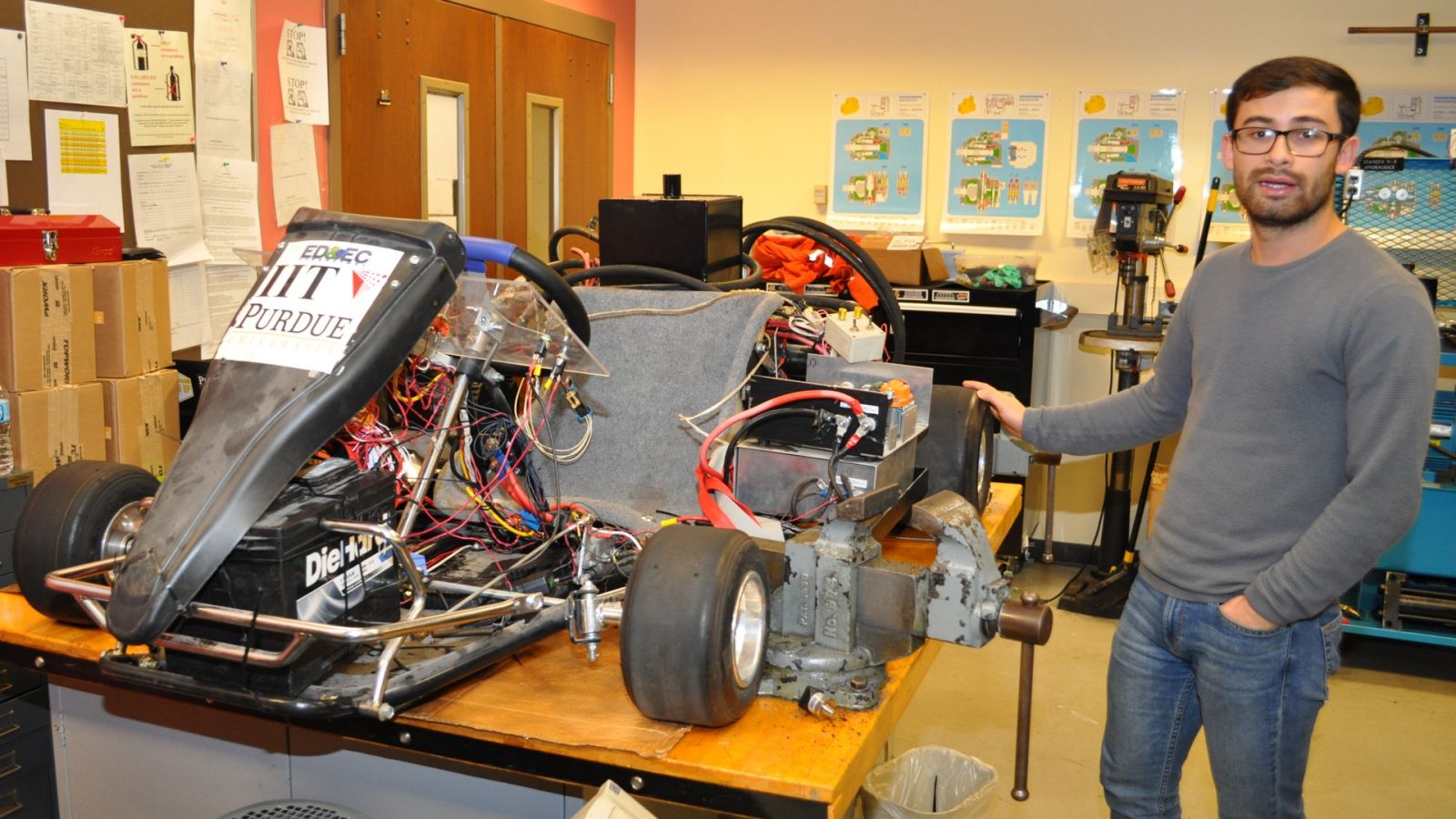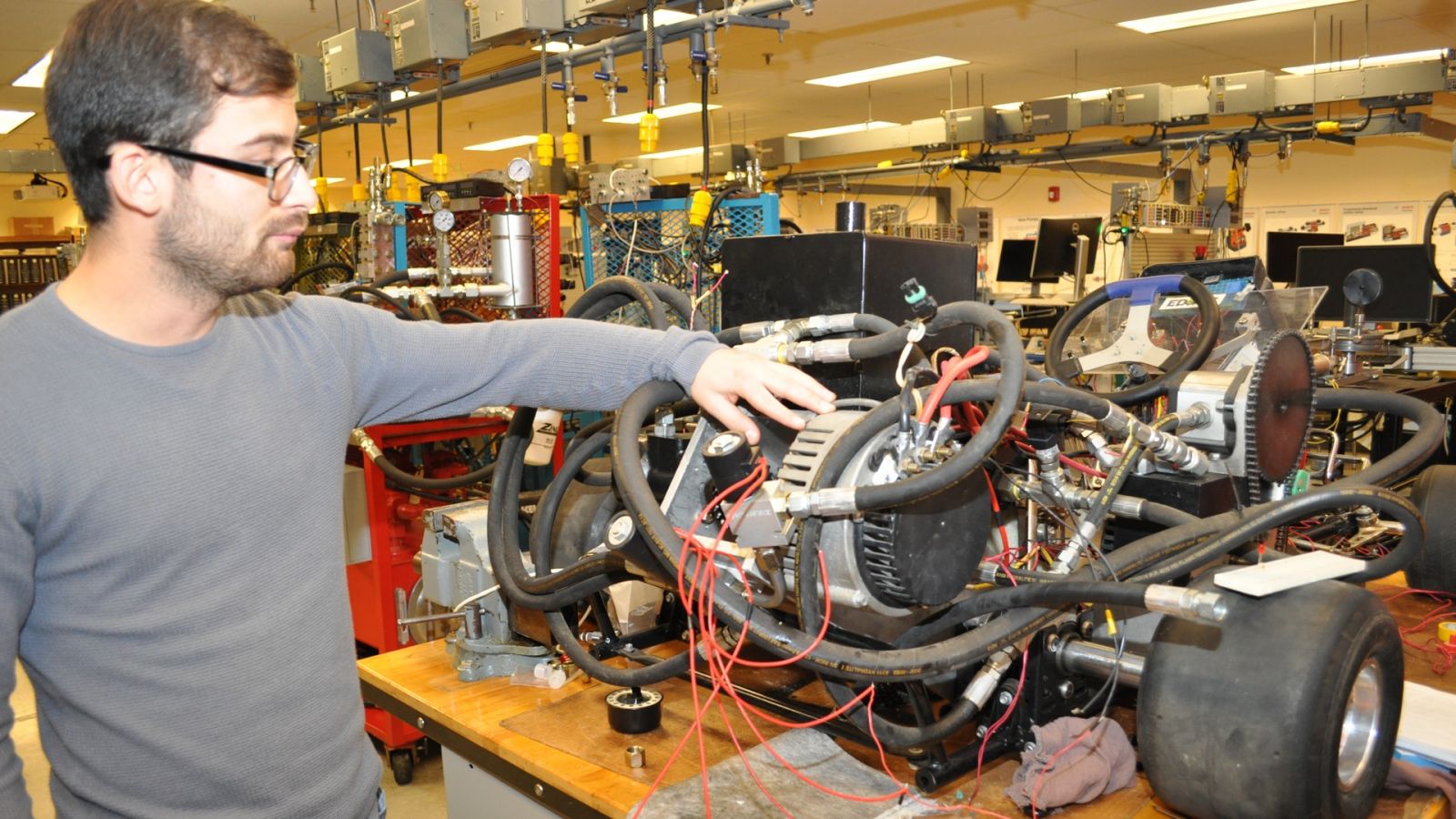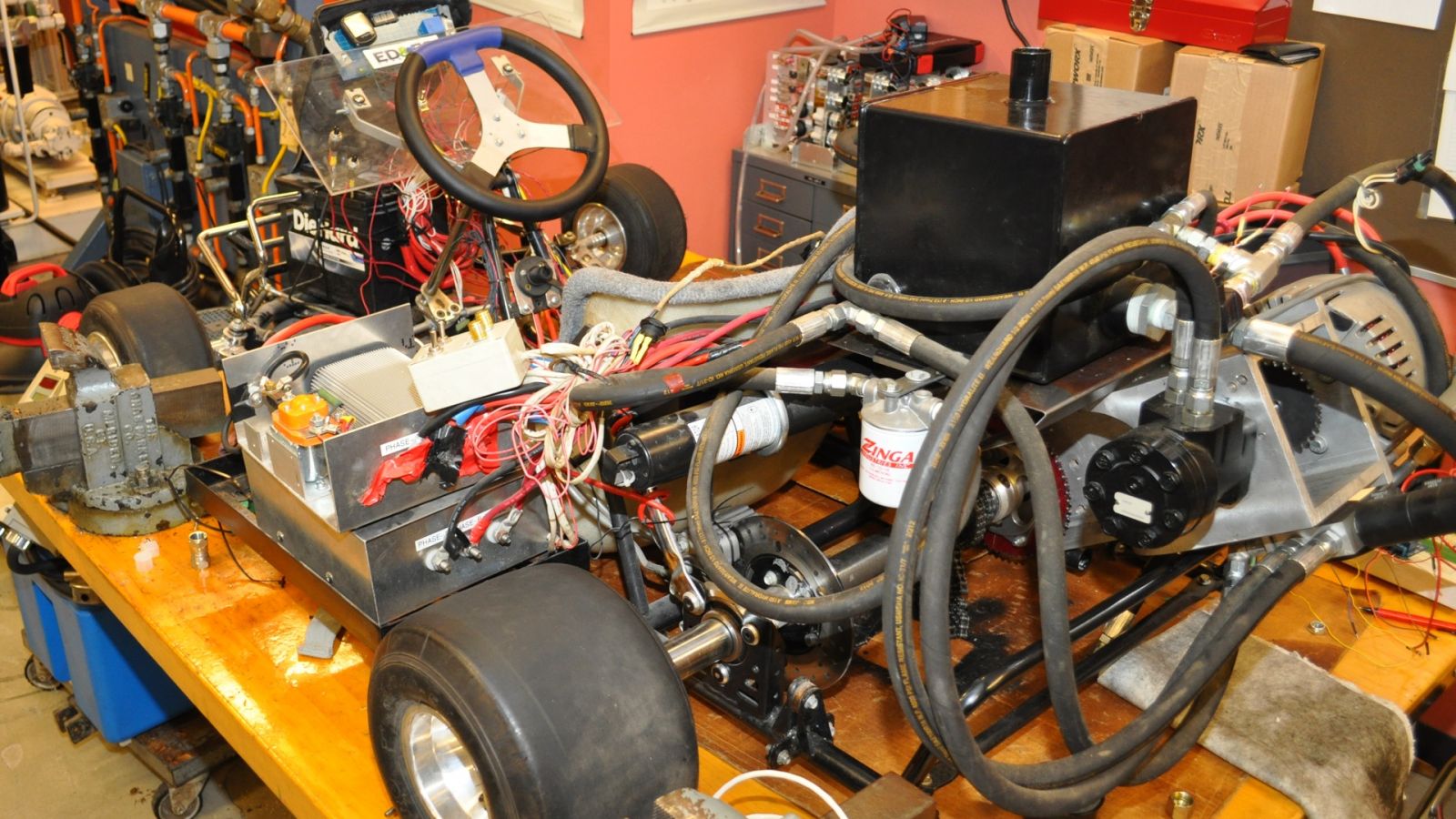
Electric vehicles equipped with hydraulic hybrid transmissions have the potential to be considerably more energy efficient than electric hybrids which do not use hydraulics. Jorge León, a graduate research assistant working with José Garcia-Bravo in the School of Engineering Technology, hopes to use hydraulic devices and fuzzy logic theory to maximize the energy efficiency in electric busses.
Hybrid vehicles may have two or more sources of power. A conventional hybrid car is equipped with an internal combustion engine and an electric motor. Either or both power sources can put the vehicle in motion.
“When you’re going along in your car, you have kinetic energy,” León said. “But when you slow down, you lose that energy in your brakes as heat.”
Conventional hybrid cars, which became popular after the worldwide launch in 2000 of the Toyota Prius, capture some of that energy to recharge their batteries during braking. Electric busses equipped with hydraulic transmissions have the promise of technology which will increase the life and the range of an electric battery. They employ the movement of fluids in confined spaces under pressure to store kinetic energy. The nature of their drive cycles makes them good subjects for research, León said.
“In a bus, you have a lot of braking events,” said León, “A hydraulic accumulator, which has the ability to charge and discharge very fast, would allow you to regenerate energy quickly.”

León is researching how to optimize vehicle power management systems to take full advantage of the hydraulic transmissions’ ability to regenerate energy quickly. He found that fuzzy logic control theory might increase energy efficiency.
“With fuzzy logic, it is possible to make a refined control in the more critical zones and a general control in the zones where it is not necessary to have high accuracy,” said León.
León created a case study based on the Chevrolet NKR Reward Euro IV, a commercial passenger bus used by the Integrated Public System of Transportation (SITP) in Bogotá, Colombia. Using fuzzy logic theory in the control strategy to simulate driver input, León used Matlab and Simulink software to create numerical models. The results suggested that a hydrostatic transmission could increase energy efficiency noticeably as compared to transmissions in a conventional electric hybrid bus and significantly as compared to an identical non-hybrid bus.

“At this stage of the research, the model is saying that yes, fuzzy logic can be useful,” León said. “Now we are constructing systems on a test bench to validate those results and to see if it works in the real world.”
In the United States during 2016, the transportation sector was responsible for 29% of all energy consumption. Improvements in that sector’s energy efficiency could significantly reduce global energy usage, León said.
León earned bachelor’s and master’s degrees in mechanical engineering at the University of los Andes in Bogotá. During his master’s research, he met García-Bravo, assistant professor of engineering technology, and gained experience in hydraulics.
“I’ve always been interested in numerical methods to solve engineering problems,” said León. “I like the Polytechnic approach to education. We are doing theoretical work with simulations and numerical models, but we are also making real stuff on our test bench which will help prove whether our model is sound.”
